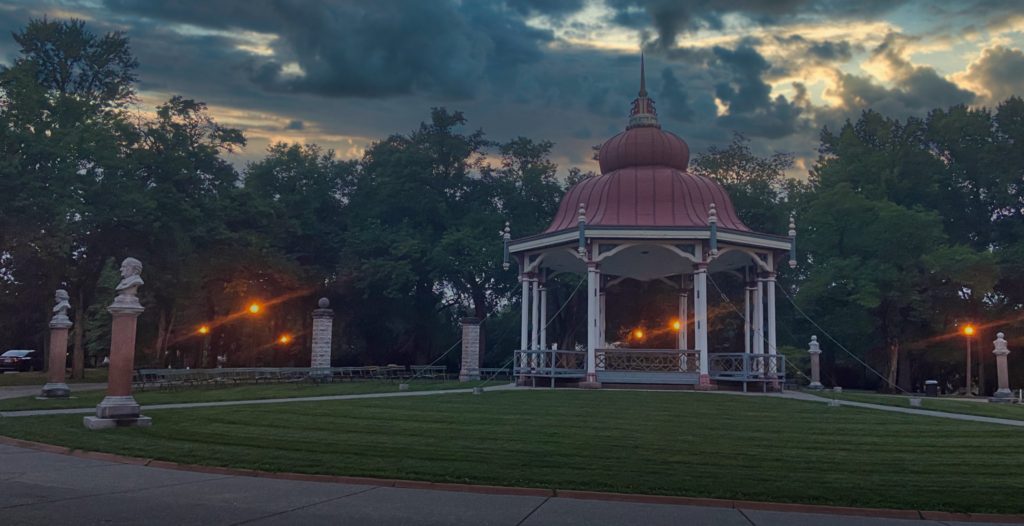Tower Grove Park in St. Louis: A Way to Celebrate Each Other Despite COVID
I'm repeatedly falling in love with Tower Grove Park, which is a short walking distance from my home in the near south side of St. Louis. At the TGP website, one can read: "The mission of Tower Grove Park is to be an exemplary, well-preserved and well-presented, wooded Victorian park of international significance . . . " Absolutely true. I took these photos tonight to offer you the opportunity to see why I tend to exude over the top when talking about TGP. The sun was setting as I took these photos; there is no time of day when this park fails to inspire. I avoided invading the privacy of the people in these photos, but even total darkness is not a reason to leave for many of them.
While COVID keeps wearing us down, a newfound appreciation for magic places like TGP is a silver lining: People from the surrounding neighborhoods are increasingly celebrating this park. I never seen so many families using the park. Friends gather at a distance under the gazebos or on picnic blankets. It is a sacred place of peaceful celebration. No matter what day it is, I am likely to think of that classic Chicago tune, "Saturday in the Park." It is impossible to walk through TGP without soaking in upbeat social vibes from a vibrant melting pot of people representing numerous languages and demographics. I speak for all of my neighbors when I say: This upbeat diversity is why I live in this neighborhood.
That TGP serves as such a respite from COVID is not a surprise. TGP's 289 acres are covered with more than 7,000 gorgeous trees. You can easily and safely social distance from many hundreds of people in such a vast area. BTW, Central Park in NYC is 840 acres, which is smaller than the biggest park in St. Louis, Forest Park, with 1326 acres.
I try to get at least one long brisk walk every day in Tower Grove Park. I also tend to do some of my writing on a park bench or under one of the many gazebos. Along with my own photos, I'm going to include a compilation of sketches by a lithograph company called Compton & Dry, which created a detailed drawing of the City of St. Louis in 1875, probably with the assistance of some balloon flights. In this compilation, you can see that TGP had been laid out before any of the houses in the surrounding areas were built. This is city planning at its best, thanks to a man named Henry Shaw, who donated this land to the City of St. Louis in 1866.
That's it for now, my Ode to Tower Grove Park. I hope that you too are finding relief from COVID, at least once in a while, by reconnecting with your community at your neighborhood parks.




